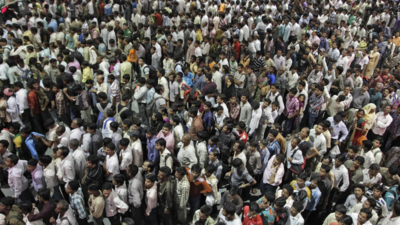
NEW DELHI: Even as India's fertility rate is declining, many people in India, especially women, still face significant barriers to making free and informed decisions about their reproductive lives, says the UN Population Fund's State of World Population Report released Tuesday.
These barriers create what the report identified as India's "high fertility and low fertility duality".The fertility rate has come down from nearly five children per woman in 1970 to about two, courtesy improved education and access to reproductive healthcare. The TFR fell below the replacement level rate to 2.0 for the first time in the National Family Health Survey (2019-21).States such as Bihar, Jharkhand and Uttar Pradesh continue to experience high fertility rates.
Here, unintended and closely spaced births are common due to poor contraceptive and health services, and gender norms, it said.On the other hand, states such as Delhi, Kerala and Tamil Nadu have sustained below-replacement fertility with many couples delaying or skipping childbirth due to costs and work-life conflict, especially among educated middle-class women.The report called for a shift from panic over falling fertility to addressing unmet reproductive goals as it highlighted that millions of individuals are not able to realise their real fertility goals.
"This is the real crisis, not underpopulation or overpopulation. The answer lies in greater reproductive agency - a person's ability to make free and informed choices about sex, contraception and starting a family," it said.In line with these trends, a UNFPA-YouGov survey of 14,000 respondents across14 countries, including India, challenged global narratives around "population explosion vs population collapse" as it showed that one in three adult Indians (36%) face unintended pregnancies while 30% experience unfulfilled desire of having either more or fewer children.
Notably, 23% faced both.Financial limitation is one of the biggest barriers to reproductive freedom with nearly four in 10 people citing it as a reason stopping them from having the families they want. Job insecurity (21%), housing constraints (22%), and lack of reliable childcare (18%) are making parenthood feel out of reach.
.png)
 German (DE)
German (DE)  English (US)
English (US)  Spanish (ES)
Spanish (ES)  French (FR)
French (FR)  Hindi (IN)
Hindi (IN)  Italian (IT)
Italian (IT)  Russian (RU)
Russian (RU)  1 day ago
4
1 day ago
4








Comments